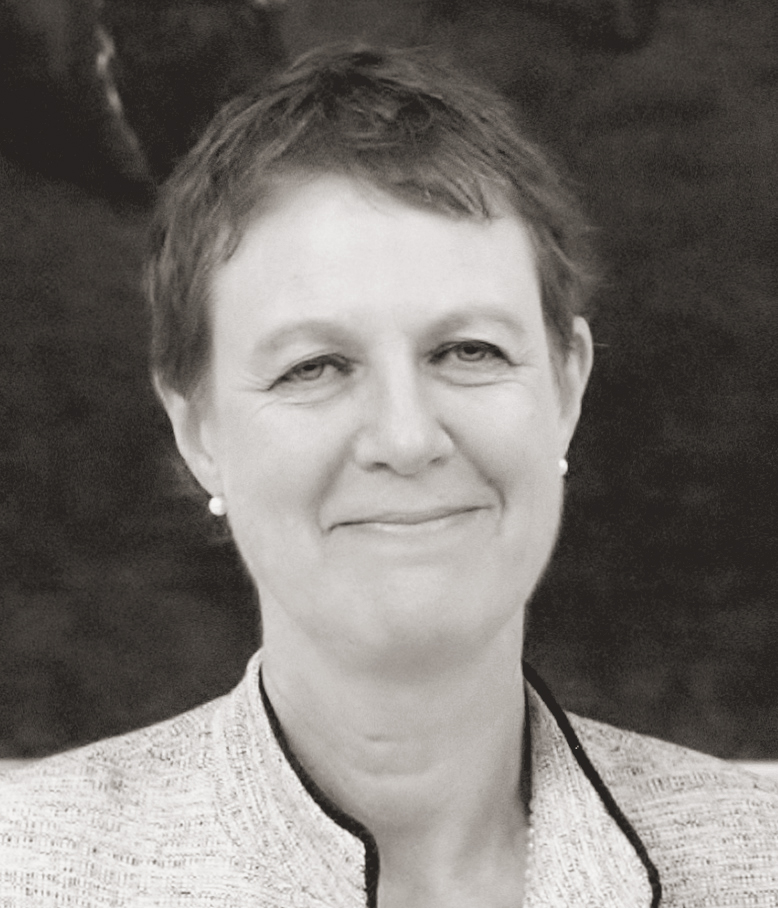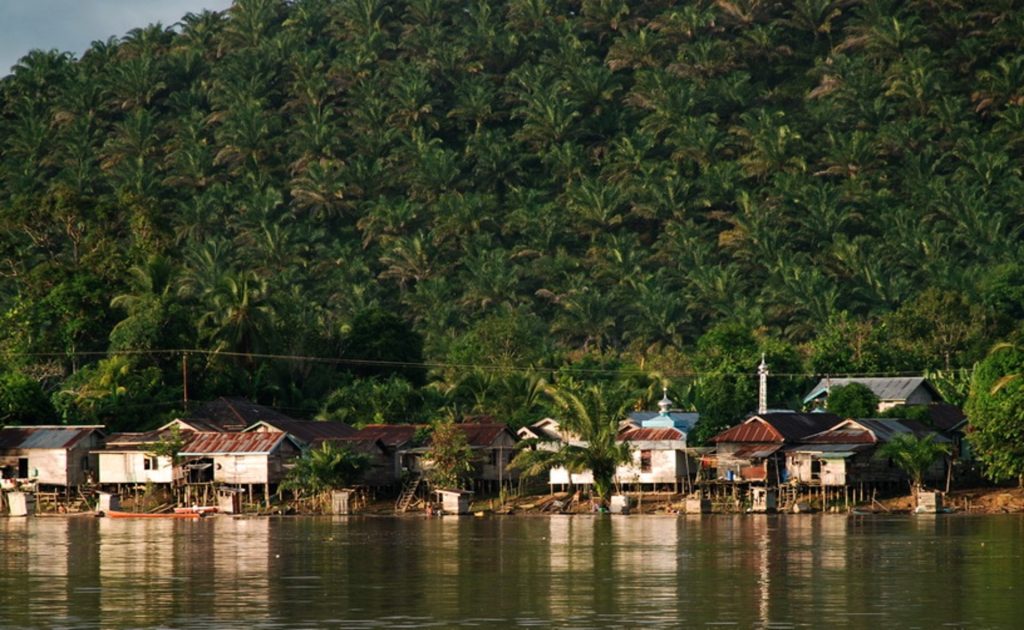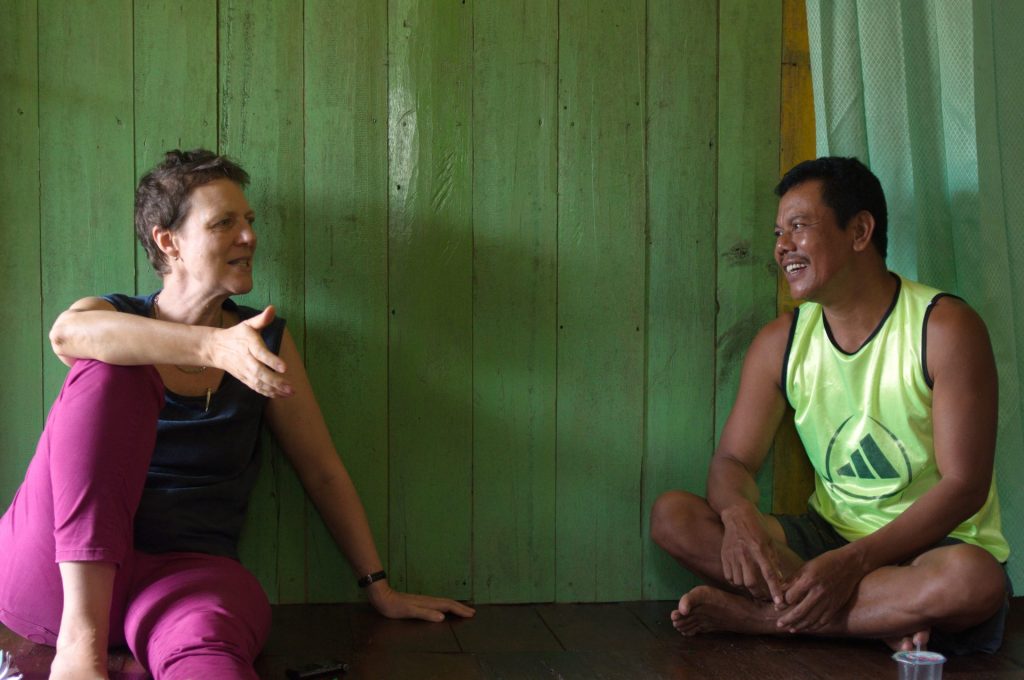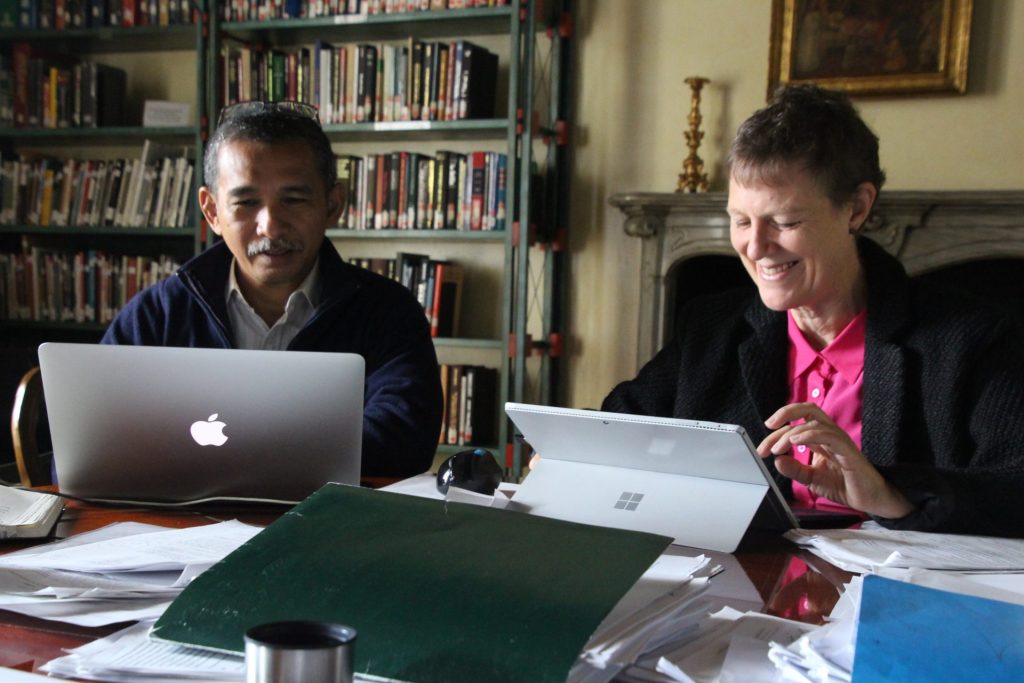Li, Tania
VISITOR’S VOICE
Interview with Tania Li »

Plantations Today
01
Please tell us about your research.
For the past decade I have been examining the re-emergence of large scale, mono-crop plantations as a privileged form of production in the global south. Corporations, governments and development agencies support plantation expansion by arguing that plantation production makes efficient use of land and labour; brings jobs and development to rural areas; and supplies governments with revenues and foreign exchange. The list of claimed benefits is endlessly repeated by proponents of plantation expansion, yet there is surprisingly little research that supports these claims with empirical findings from zones in which plantations have come to dominate.
In 2010-2015 I conducted in depth, ethnographic research on the social, political and economic impacts of oil palm plantations in West Kalimantan, Indonesia, together with my colleague Dr Pujo Semedi from Gadjah Mada University and a team of student researchers. We studied the processes that enabled some actors to benefit from plantation presence while others were severely marginalized. During the visiting fellowship in Kyoto I will focus on research translation. Specifically, I propose to develop a series of publications in multiple written and graphic formats such as short articles, blogs, podcasts, and visual media. My goal is to reach audiences beyond the academic milieu and draw from our research to contribute to public policy and debate.
02
How did you get started in your research and how did you come to focus on your current research?
I have always been interested in exploring how people gain their livelihoods and how they build meaningful lives, often under challenging conditions. I first became curious about oil palm plantations when I was a teenager living in Singapore. I recall driving through Johor on the old road which passed through villages and rubber smallholdings, and was full of life: rubber tappers on bicycles in the early morning, children off to school, and plenty of coffee stalls where we could stop for breakfast. When the new highway was built the landscape was entirely different. We saw only oil palm all the way, looming, dark and desolate. That early experience made me want to know: how did these plantations come to be there? What was there before the plantations? Who did the work on these plantations and what kinds of life did they lead, tucked out of sight among the palms?
Since my post doc in 1989-92, my research has focused on rural development in Indonesia’s upland and hinterland regions. I conducted long term research 1990-2009 with indigenous farming families in Sulawesi who opted to plant cacao, hoping to improve their incomes. I wrote up my findings in Land’s End: Capitalist Relations on an Indigenous Frontier (2014). Then in 2010 I started research on oil palm plantations, recognizing that this form of production was expanding massively in Indonesia and transforming the lives of millions of people. I worked with Dr Pujo Semedi, a colleague from Gadjah Mada University and around a hundred students to explore what it means for people to live in landscapes that are saturated with palms, and dominated by the presence of plantation corporations. We identified this as a gap in research. There have been many studies of what is lost when landscapes are transformed into mono crop palm (e.g. forests, biodiversity, access to customary land, diverse farming livelihoods). We wanted to know about the novel forms of life that plantations set in place. We published our findings in Plantation Life: Corporate Occupation in Indonesia’s Oil Palm Zone (2021).

03
Can you share with us an episode about any influential people, things, and places you have encountered whilst doing your research?
Field research in my discipline, socio-cultural anthropology, offers a researcher the chance to get to know their interlocutors, spend time with them, learn from them, and engage in lots of conversations. Not surprisingly, I find myself attracted to people who are especially thoughtful and are willing to share their own observations and reflections. To give one example, during my research on the plantations one transmigrant farmer sat me down one day and said: “Tania you have been here a month now, and I’m not sure if you have really understood what is going on here so let me explain it to you.” He then proceeded to offer an insightful analysis of every element of the plantation system explaining how different actors were able to take advantage of their positions to extract illicit value. Not only did I learn from him, I could see that some aspects of life in the plantation life that made me uncomfortable – like pervasive theft and predation – made him uncomfortable too, hence the effort he had made over the years to make sense of it. He called the plantation world a “mafia system,” in which predation was not an aberration but structured and routine. No book I read contained such an original and powerful analysis. How could I not enjoy fieldwork when I have conversations with farmers like this?

04
What is your ideal image of a researcher?
Curiosity is an essential starting point for a researcher but the ideal for me is to combine curiosity with a sense of the political stakes of the questions we ask and the analysis we generate. For whom are these questions important? In anthropology this kind of research is labelled “engaged,” meaning engaged with questions that are relevant to peoples’ lives. “Engagement” isn’t a standard that would be relevant in all disciplines but for me it has served as a guide. It has put me into conversation with scholars in many disciplines who work on questions of land, labour, development, environment, and inequality. It has also forged the grounds for collaboration with activists in social movements. With my NGO collaborators in Sulawesi, we had a good division of labour: we undertook research together, then we wrote up the results in different ways and used the research for different purposes. I wrote academic articles; they often communicated our key findings via popular media and by directly mobilizing for change in their region. It is not appropriate for a foreign scholar to engage in politics directly, but by working in collaboration our research can have multiple uses. The book I published from this research was The Will to Improve: Governmentality, Development, and the Practice of Politics (2007). An article I co-authored with Indonesian activist Arianto Sangaji can be found here. Another aspect of engagement for me is translating work into Indonesian so that readers know what I have been saying about their country. Translation is time consuming and can be expensive, but I think it is an important component of ethical research. I also try to make all my research accessible by posting free links on my website.
05
Do you have any must-have gear for field research and writing?
A sense of humour and good comrades. I had a great time working with Pujo Semedi on the research and writing of our book. It was hard work to put our ideas into dialogue but hugely rewarding. Research and writing can be very isolating and the challenges can seem overwhelming. Even if a scholar is conducting a solo project, they benefit from having comrades who can offer practical and moral support, and a sounding board for emerging ideas.

(February 2023)
Tania Li is a Visiting Research Scholar of CSEAS
from February – July 2023